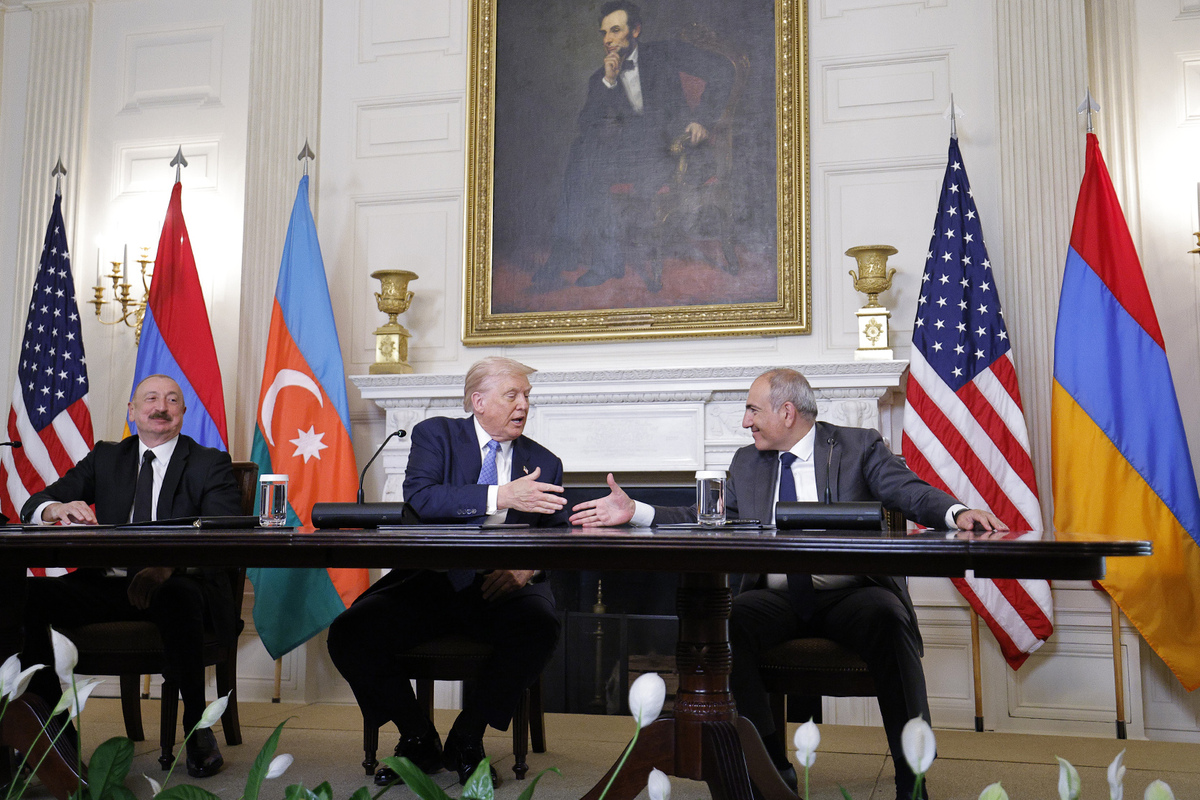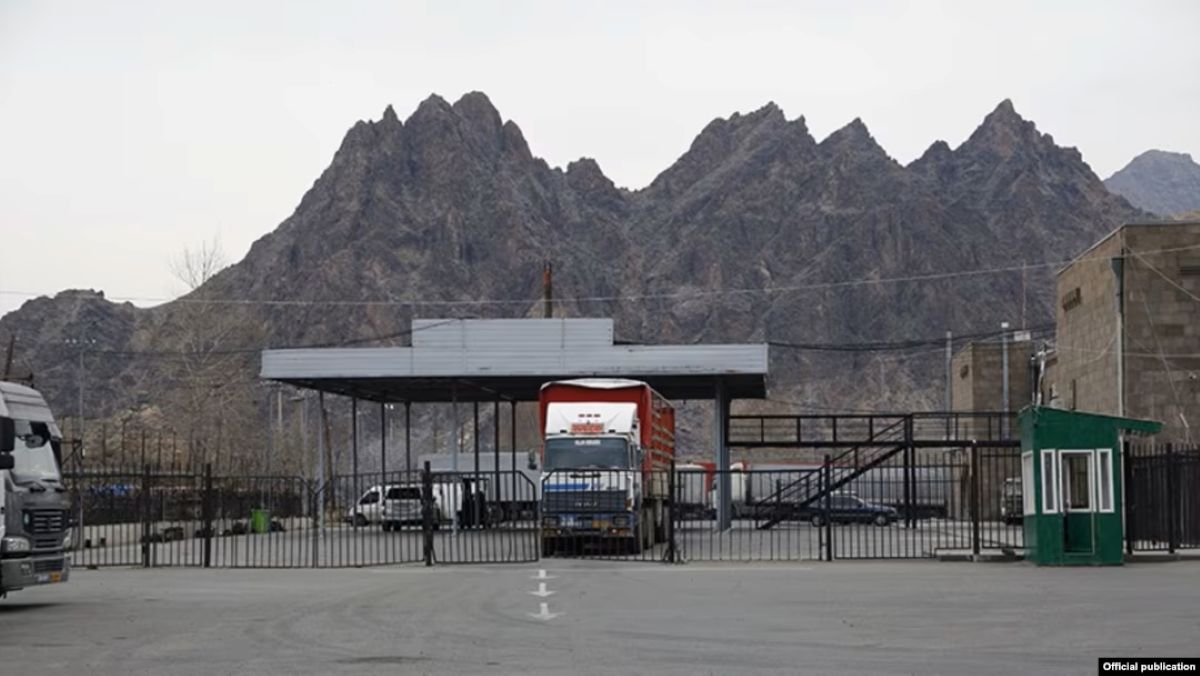"Aliyev speaks of a "corridor" and calls Armenian society "sick" after the US meeting" - opinion from Yerevan
Aliyev’s narratives undermine the Washington agreements
After the 8 August Washington meeting between Trump, Pashinyan and Aliyev, the Azerbaijani president has repeatedly broken the agreements reached there, according to experts from Armenia’s Fact-Checking Platform (fip.am). Over the past month, they say, violations have been observed both of the declaration signed by the three leaders in the US and of the initialled peace agreement.
Investigative journalists note that Azerbaijan continues to speak to Armenia in the language of preconditions, demanding constitutional changes. On regional transport links, Baku still refers to the project as the “Zangezur corridor.”
This route would connect Azerbaijan with its exclave Nakhchivan through Armenian territory. Baku had pushed for an extraterritorial corridor, while Yerevan rejected any loss of sovereignty. In Washington, the sides agreed instead on creating the “Trump Route for International Peace and Prosperity,” which would not be extraterritorial and would be managed by an American company.
Aliyev has also continued to use what observers call “hate speech” in his public remarks.
“This is a sick society [Armenian society], and I say this openly,” Aliyev declared on 25 August during a meeting with Azerbaijanis resettled in Kalbajar.
Yet the peace agreement initialled in Washington includes a commitment to renounce “intolerance, racial hatred and discrimination.”
- “US backs both Armenia and Azerbaijan”: view from Yerevan
- “Turkey is trying to limit Armenia’s transit options”, say analysts in Yerevan
- ‘No third-party control’ – Armenian foreign minister on the “Trump Route” programme
- “Peace treaty would mean Baku dropping its ‘Western Azerbaijan’ claim” – opinion from Yerevan
Azerbaijan continues to refer to the reopened transport link as the “Zangezur corridor”
“The recently reached agreements on connecting the main part of Azerbaijan with its Nakhchivan Autonomous Republic will expand transit opportunities for international transport. I am confident that the Zangezur corridor will soon become another important segment of the Middle Corridor, as well as the North–South corridor,” president Ilham Aliyev said at the Shanghai Cooperation Organisation summit.
By using the term “corridor” in reference to routes running through Armenia’s sovereign territory, Aliyev violated both the peace agreement’s clause that the sides “have no territorial claims against each other” and the wording of the Washington declaration, according to fip.am.
“We reaffirmed the importance of opening communications between the two countries for domestic, bilateral and international transport in order to promote peace, stability and prosperity in and around the region, based on respect for the sovereignty, territorial integrity and jurisdiction of states,” the declaration reads.
The document signed by Aliyev, Pashinyan and Trump makes no mention of a “corridor.”
Armenian prime minister Nikol Pashinyan also responded to Aliyev’s wording at the SCO summit, recalling that the Washington declaration had agreed on specific terminology:
“The language used by the president of Azerbaijan is not in line with the logic we agreed in Washington. All the more so since, under those agreements, Armenia and the US are implementing an investment programme in the transport sector called the ‘Trump Route for International Peace and Prosperity.’”
Pashinyan stressed that “using this clarified, agreed terminology will help foster a constructive atmosphere and move the process forward.”
Baku interferes in Armenia’s internal affairs by demanding constitutional changes
Under the initialled peace agreement, both sides pledged to refrain from interfering in each other’s internal affairs. Yerevan considers constitutional reform strictly its own business. Yet Baku continues to insist that Armenia’s constitution contains territorial claims. President Ilham Aliyev has repeatedly said the only obstacle to signing the peace deal is the lack of such an amendment.
“As far as we understand, they will introduce the amendment. And once this constitutional change is made, once the territorial claims against Azerbaijan are removed, the peace agreement will be signed,” Aliyev told Al Arabiya.
Baku’s concern is that the preamble of Armenia’s constitution refers to the Declaration of Independence, which cites a joint resolution adopted on 1 December 1989 by the Supreme Council of the Armenian SSR and the National Council of Nagorno-Karabakh. That resolution was titled “On the reunification of the Armenian SSR and Nagorno-Karabakh.”
According to the Fact-Checking Platform, Aliyev’s statements contradict not only Article 4 of the peace agreement, which prohibits interference in each other’s internal affairs, but also two other provisions.
Article 2 affirms that “the parties confirm they have no territorial claims against each other and will not present such claims in the future.”
Article 12 states that “neither party may invoke provisions of its domestic law as justification for failing to implement the agreement.”
“In effect, the agreement already addresses such concerns, but Aliyev continues to make this constitutional change a precondition,” fip.am concludes.
Aliyev’s narratives undermine the Washington agreements




















